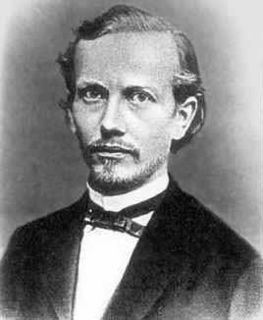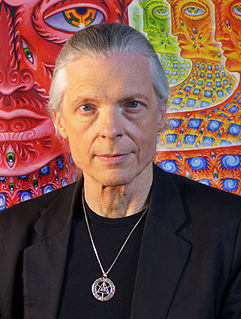A Quote by Vladimir Lenin
Materialism is the recognition of "objects in themselves", or outside the mind; ideas and sensations are copies of images of those objects.
Quote Topics
Related Quotes
As you are aware, no perceptions obtained by the senses are merely sensations impressed on our nervous systems. A peculiar intellectual activity is required to pass from a nervous sensation to the conception of an external object, which the sensation has aroused. The sensations of our nerves of sense are mere symbols indicating certain external objects, and it is usually only after considerable practice that we acquire the power of drawing correct conclusions from our sensations respecting the corresponding objects.
According to the technical language of old writers, a thing and its qualities are described as subject and attributes; and thus a man's faculties and acts are attributes of which he is the subject. The mind is the subject in which ideas inhere. Moreover, the man's faculties and acts are employed upon external objects; and from objects all his sensations arise. Hence the part of a man's knowledge which belongs to his own mind, is subjective: that which flows in upon him from the world external to him, is objective.
My pictures are devoid of objects; like objects, they are themselves objects. This means that they are devoid of content, significance or meaning, like objects or trees, animals, people or days, all of which are there without a reason, without a function and without a purpose. This is the quality that counts. Even so, there are good and bad pictures.
When he tries to extend his power over objects, those objects gain control of him. He who is controlled by objects loses possession of his inner self... Prisoners in the world of object, they have no choice but to submit to the demands of matter! They are pressed down and crushed by external forces: fashion, the market, events, public opinion. Never in a whole lifetime do they recover their right mind!... What a pity!
Our world, so we see and hear on all sides, is drowning in materialism, commercialism, consumerism. But the problem is not really there. What we ordinarily speak of as materialism is a result, not a cause. The root of materialism is a poverty of ideas about the inner and the outer world. Less and less does our contemporary culture have, or even seek, commerce with great ideas, and it is that lack that is weakening the human spirit. This is the essence of materialism. Materialism is a disease of the mind starved for ideas.
In true meditation the emphasis is on being awareness; not on being aware of objects, but on resting as primordial awareness itself. Primordial awareness is the source in which all objects arise and subside. As you gently relax into awareness, into listening, the mind's compulsive contraction around objects will fade. Awareness naturally returns to its non-state of absolute unmanifest potential, the silent abyss beyond all knowing.
I've always been fond of the idea expressed in Buddhist art, that there are certain objects that, just by seeing them, can plant a seed for liberation in the individual. That class of objects is called "liberation through seeing." Certain Buddha images are like that, but if it were possible, I would like to find contemporary non-traditional sacred images. Maybe it sounds pretentious, but most spiritual paths point to the possibility that we all can access the deep, absolute dimensions of reality.








































